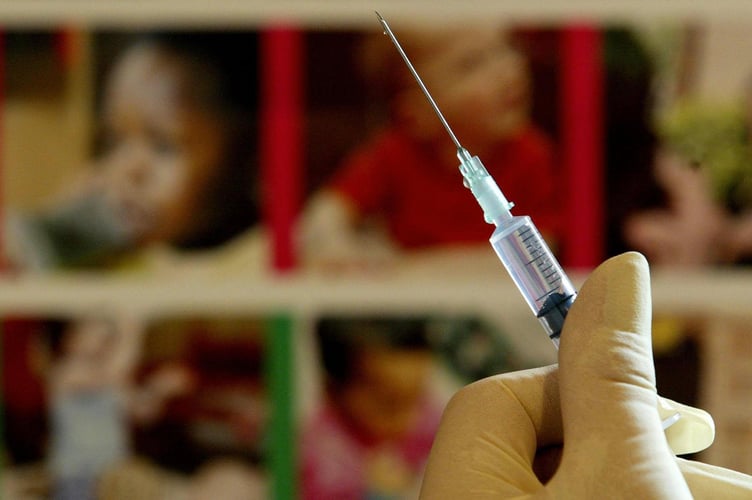Gloucestershire missed the target for children's vaccination levels against measles, mumps and rubella last year, figures show – as uptake in the area fell.
An epidemiologist warned the national downward trend in uptake is a "serious concern" as the diseases can be life-changing and even deadly.
NHS figures show 89.3% of youngsters in Gloucestershire had both doses of the MMR vaccine by their fifth birthday in 2022-23 – below the 95% target set by the World Health Organisation.
It was also a fall from 91.1% coverage the year before.
Across England, 84.5% of five-year-olds had the second jab of the vaccine by 2022-23. It was the lowest level recorded since 2010-11.
Dr Gayatri Amirthalingam, consultant medical epidemiologist at UKHSA, said the downward trend is a "serious concern".
She said: "The diseases that these vaccines protect against, such as measles, polio and meningitis, can be life-changing and even deadly.
"No parent wants this for their child especially when these diseases are easily preventable. Please don’t put this off, check now that your children are fully up to date with all their vaccines due. Check your child’s red book and get in touch with your GP surgery if you are not sure."
In the UK, babies are also offered immunisation against meningitis B and rotavirus at eight weeks old, and are also given the “6-in-1” jab, which helps fight polio, tetanus, whooping cough, diphtheria, hepatitis B and haemophilus influenzae type b – a bacteria that can cause life-threatening infections.
Nationally, none of these vaccines met the WHO target in 2022-23.
In Gloucestershire, just one childhood vaccine for babies met the 95% mark:
- 94.1% of babies received their 6-in-1 vaccine by their first birthday
- 95% were protected against pneumococcal vaccine
- 93.6% of babies had a jab against meningitis B
- 91.2% were given the rotavirus vaccine
Dr Doug Brown, chief executive of the British Society for Immunology, said England "continues to miss key targets".
He added: "Vaccines are the safest and most effective method to protect our children against disease.
"In the past year, 12 out of the 14 childhood vaccinations have seen their uptake decrease, putting our communities at higher risk of infection and illness.
"Lower levels of vaccination mean that harmful diseases can spread, infecting people who have not been vaccinated, including vulnerable individuals who are unable to have vaccinations such as young babies, people with compromised immune systems or people with cancer."
A Department for Health and Social Care spokesperson said it is vital routine childhood vaccinations are up to date.
They added: "The UK has a world-leading offer and we have run multiple catch-up campaigns to improve coverage – including a national catch-up campaign for MMR and London-specific campaigns for MMR and polio.
"We urge parents and carers to check that their children are up to date on their vaccines and if not, they should book an appointment to catch up."




